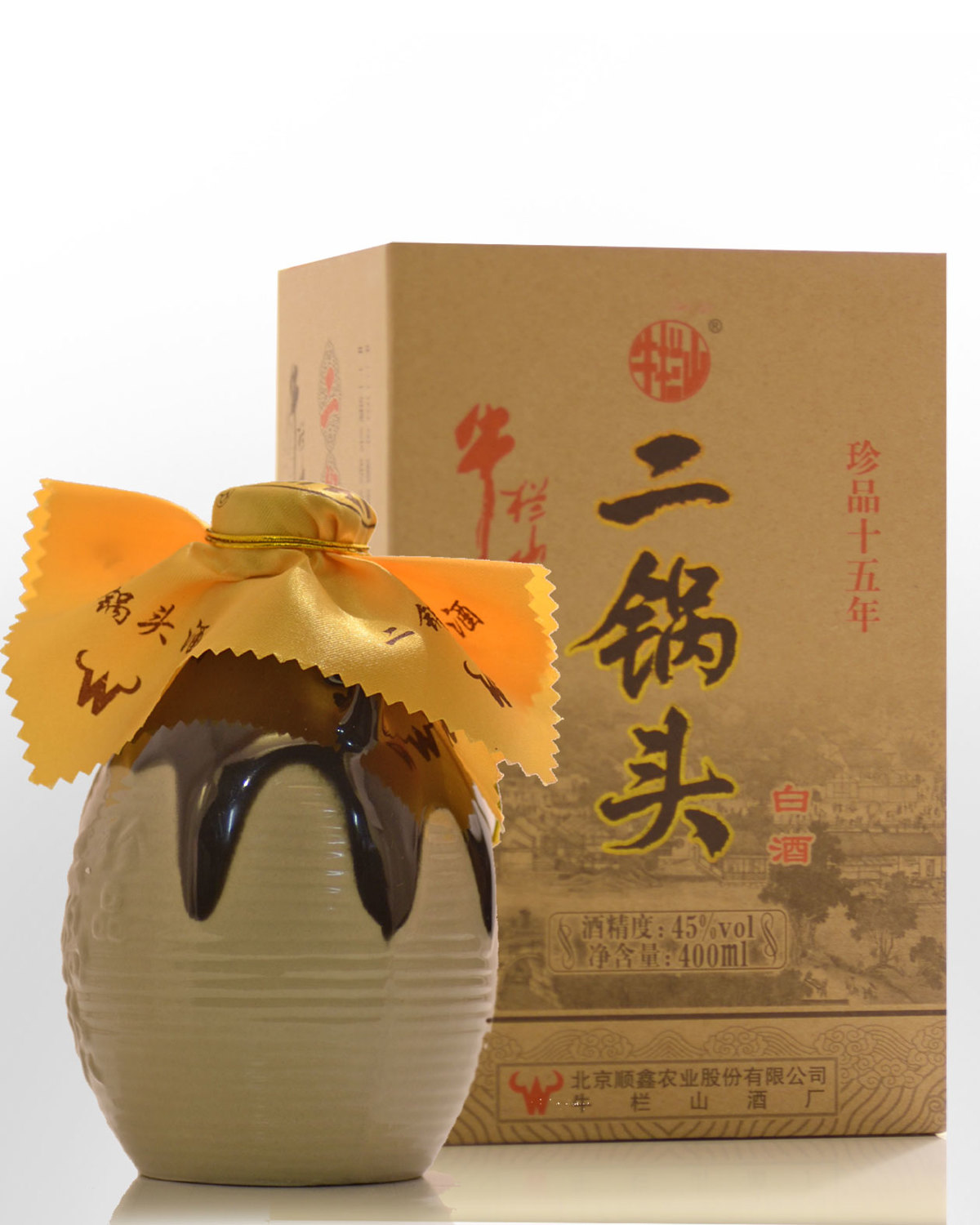
- 89
Niulanshan Distillery Erguotou Premium (Brown Bottle) Baijiu (400ml)
CHINA
$89. 99
Bottle
$1079.88 Dozen
ABV: 45%
The Chinese are known to imbibe some pretty strong spirits, Baijiu being one, and it's polarising stuff. To the Western palate, it's challenging, to say the least. The more pungent examples have large amounts of ester compounds, which in combination with the high alcohol can impart a sharp solvent/varnish-like note. The various styles are grouped primarily by fragrance.
Two of the more common varieties of Baijui are 'Moutai' and 'Erguotou'. The former is produced in a town of the same name. Described as "a sauce aroma baijiu because of its pure, mild, and mellow soy sauce-like after-taste", it's distilled from fermented sorghum, and bottled anywhere from around 55% to 35% ABV.
"Erguotou", which means “second distillation” (or literally “head of the second pot”), is a light aroma Baijiu that takes six months to produce and is usually flavoured with walnuts, longans, jujubes, ginseng and/or sugar. These northern Chinese varieties may use wheat, barley, millet, or even Job's tears in place of sorghum. The “jiuqu” starter culture used in the production of baijiu mash is usually made of pulverised wheat grains.
To make Erguotou, the sorghum is ground up and then boiled. The first batch has over 70% ABV and is discarded. After a few days the grain is boiled again and this batch is called erguotou. The sorghum is then left to ferment in deep pits in the ground for several days, before being distilled and blended.
Erguotou can be made in six months. But the better tasting ones are those that are aged for over 10 years – even up to a century.
Erguotou has become one of the most popular Baijius in Beijing and has a deep association with the capital.
We've just received two examples in Australia, attractively packaged in traditional ceramic vessels. It's recommended they be served either warm or at room temperature. Tasting note: Crystal clear. Soysauce and varnish opening followed by suggestions of sauerkraut, mustard pickle and par-boiled brussel sprouts. The varnishy note persists in later inspections. Surprisingly light and accessible in the mouth with subtle sake-like characteristics followed by suggestions of oyster sauce and Indian chutney, spicing up at the finish. Well balanced. With a complementary food match this could work. 45% Alc./Vol.
We've just received two examples in Australia, attractively packaged in traditional ceramic vessels. It's recommended they be served either warm or at room temperature. Tasting note: Crystal clear. Soysauce and varnish opening followed by suggestions of sauerkraut, mustard pickle and par-boiled brussel sprouts. The varnishy note persists in later inspections. Surprisingly light and accessible in the mouth with subtle sake-like characteristics followed by suggestions of oyster sauce and Indian chutney, spicing up at the finish. Well balanced. With a complementary food match this could work. 45% Alc./Vol.
Online orders & click & collect are our primary activities. However, feel free to drop in. Items at hand can be purchased instore.
Click here to read our Terms & Conditions.
Spend $200 get free delivery
to most of Australia
View all Australian freight rates
to most of Australia
No guaranteed delivery times.*
Expect increased delays on deliveries during peak times, such as Christmas.
